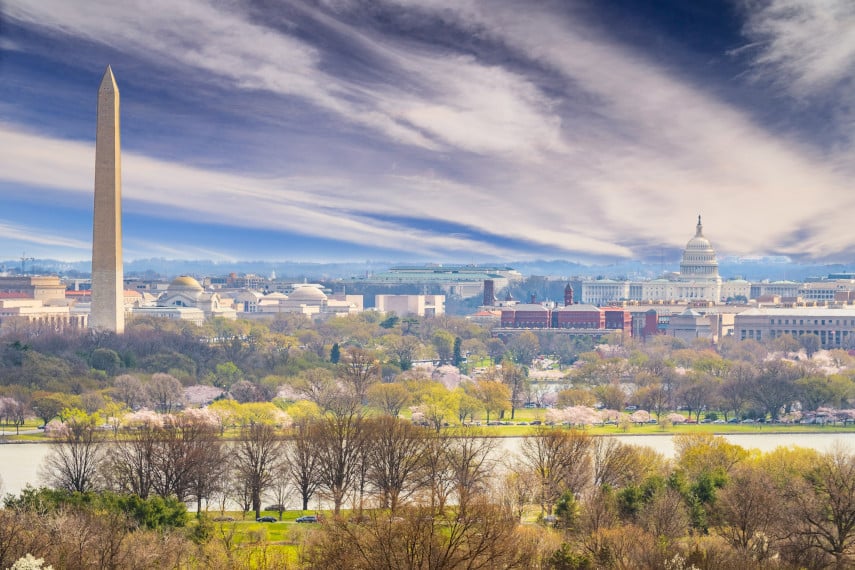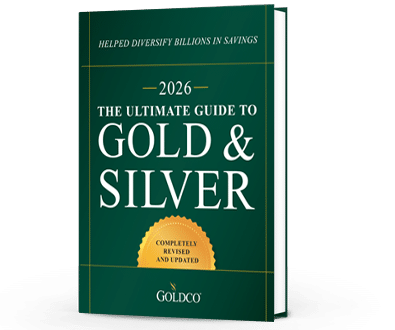3 Things That You Should Know About Inflation
Only a few short years ago, the United States experienced the highest inflation rates in over 40 years as inflation rates peaked at over 9% That was a wake up call for many Americans who had been...
Economy

There are three words you’ll never hear come out of the mouth of anyone in a position of power in Washington, DC. In fact, these three words are so difficult to say that it’s likely there are more than a few people in your life who will never utter these words.
Saying these three words means swallowing your pride, making yourself vulnerable, and admitting that you’re not perfect. And more than a few people are incapable of saying these three simple words.
“I was wrong.”
That’s it. So simple, yet so difficult to utter.
Acknowledging that you were wrong is hard for most of us to do. We all want to think that we’re right all the time, and acknowledging that we were wrong is an admission of fault.
Many times we think that admitting we were wrong is an expression of weakness, a point of vulnerability that others can exploit. Failing to say those three words is sometimes a coping mechanism for us to save face publicly, even if privately we know we’ve failed.
Saying those three words, however, is necessary to start the process of healing. And when it comes to policymakers in Washington, whose actions impact the lives of hundreds of millions of people in this country, and can impact the lives of billions around the world, acknowledging mistakes and taking steps to correct them is critical to not repeating them again.
Failing to acknowledge when they’ve been wrong, and doubling down on those mistakes, is not only harmful to the US economy, it’s also harmful to millions of Americans who have been negatively impacted by inflation. And right now it looks like the Federal Reserve, rather than acknowledging what it got wrong, is doubling down on the mistakes it has already made.
Looking back at Fed Chairman Jay Powell’s missteps on inflation, it’s easy to see the mistakes he and the Fed made. First Powell denied that inflation would get worse, even after the Fed added over $3 trillion to its balance sheet and continued to add to its balance sheet in 2021.
Then Powell said that inflation would be transitory. And only belatedly did the Fed acknowledge that inflation was problematic and begin to hike interest rates.
But as the latest inflation data demonstrate, those hikes didn’t do as much as the Fed wanted them to do. Not only is inflation not getting any closer to the Fed’s 2% target, it’s instead moving further away.
What the Fed really needs in order to bring inflation down is not to jawbone markets, or to talk about how it still anticipates three rate cuts this year. It needs to hike rates in order to slow down inflation, which is still rising every month.
But hiking rates now would be to acknowledge that the Fed made a mistake. It would acknowledge that the Fed shouldn’t have paused rate hikes when it did. And it would acknowledge that the Fed has been misreading inflation data this whole time.
We’ve been assured by the Fed for months that inflation was subsiding and that the necessary conditions for rate cuts were just around the corner. But now the first rate cuts, which had once been forecast for March, look to be pushed out to July at the very earliest.
There’s also the fact that higher interest rates would negatively impact the fiscal position of the US government, which is already expected to spend more than $1 trillion in interest expense this fiscal year.
And there’s the fact that we’re in an election year that features the prospect of a very heated Presidential election. Any moves by the Fed after the August recess could end up influencing the outcome of the race.
The Fed has really maneuvered itself between a rock and a hard place, and all because of its repeated refusal to acknowledge that it got inflation wrong. Had Powell and others at the Fed admitted that they were wrong and made a sincere effort to fix their mistakes, we might not be in the position in which we now find ourselves.
The latest inflation data throw the Fed’s ability to handle inflation into doubt. And they make it clear that inflation is still a threat to American households’ financial well-being, a threat that is growing every month.
With the Fed highly unlikely to raise rates again, inflation could become more problematic in the coming months, raising fears of stagflation. And with recession fears growing, there’s a growing likelihood that the Fed may get forced into a position where it has to cut rates or start easing monetary policy once again in order to counteract the recession.
If that happens, inflation could take off even more, putting households in their own crunch, sandwiched between rising inflation and a worsening recession. And that’s why so many people today are exploring their options when it comes to protecting their financial well-being against inflation and recession.
One of the ways they’re doing that is by buying gold and silver, two precious metals which have served as monetary metals, safe haven assets, and hedges for centuries. Both gold and silver have a track record of performing well when the economy isn’t.
During the 1970s stagflation, for instance, both gold and silver grew at annualized rates of over 30% per year over the course of the decade. And in the aftermath of the 2008 financial crisis, gold nearly tripled and silver more than quintupled from their 2008 lows.
That kind of performance was noted by many people, and many of them are deciding now to buy gold and silver to help protect themselves against rising inflation and coming recession. Perhaps that’s one reason gold continues to set all-time highs, and silver is climbing as well.
If you’re looking to add gold and silver to your portfolio, Goldco can help. With over $2 billion in precious metals placements and thousands of satisfied customers, we’ve established ourselves as one of the best gold companies in the industry.
Whether you’re looking to protect tax-advantaged assets with a gold IRA or silver IRA, or just looking to buy gold and silver coins and bars to store in a home safe, Goldco has precious metals options available for everyone.
The Fed may not be willing to admit that it was wrong on inflation, but that’s no reason for you to take the wrong approach to protecting your finances. Call Goldco today to learn more about how gold and silver can help protect you against recession and inflation.

